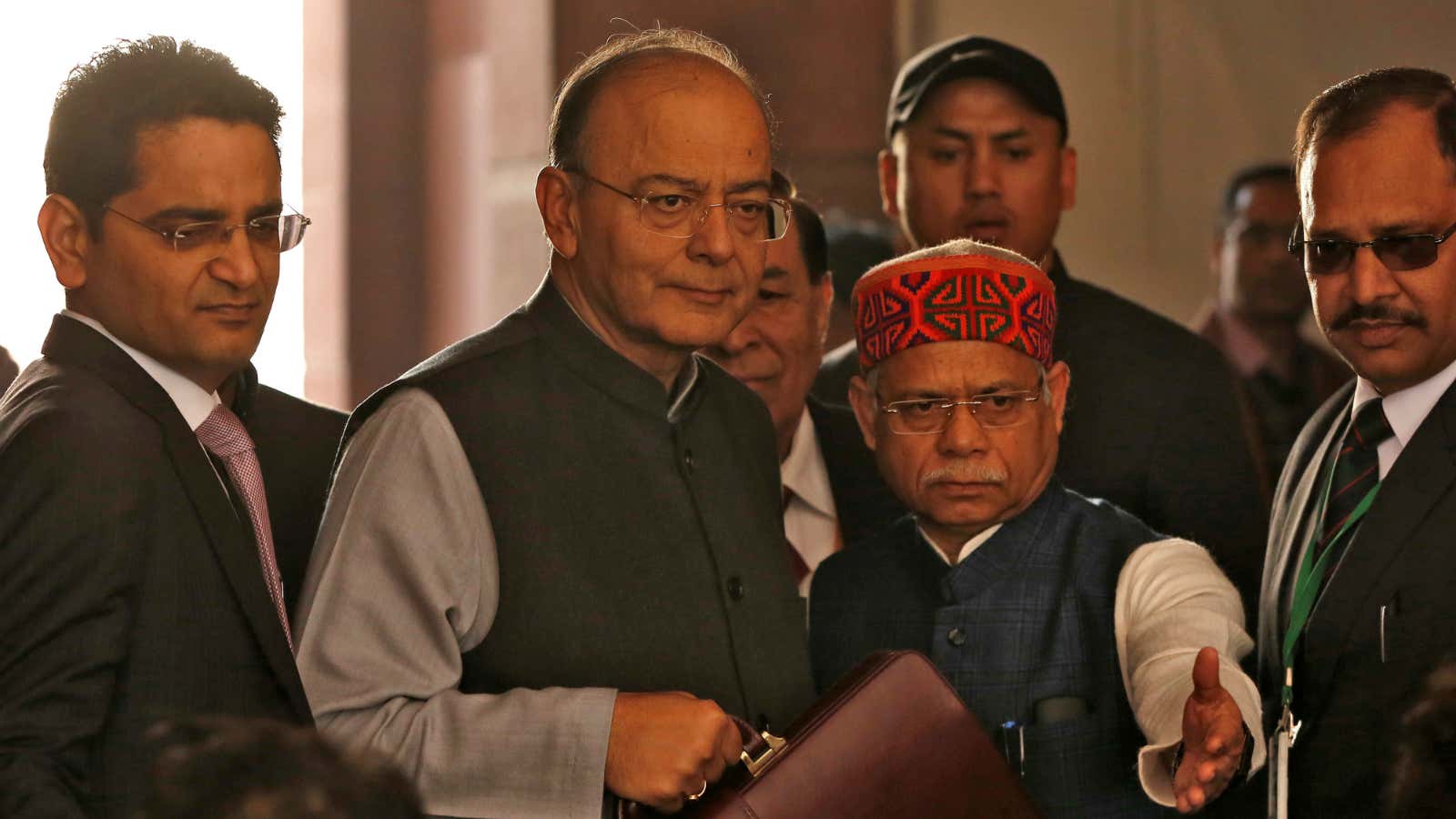In a bid to woo the rural voters, the Narendra Modi government has opened up its coffers for the hinterland.
From increasing price realisation for farm products to providing more livelihood opportunities, finance minister Arun Jaitley’s budget today (Feb. 01) had a lot to offer.
Here is a snapshot:
Agriculture promotion
In his budget speech, Jaitley said the government will work to improve the price realisation of farm products. For Kharif crops, the minimum support price, the rate at which the government procures crops from farmers, will be raised to one-and-a-half times the production cost.
The government’s think tank, NITI Aayog, has been tasked with developing a programme for better price-realisation of agricultural products, and develop the existing 22,000 rural agriculture centres, to aid farmers with direct sales of their products. Jaitley also announced the setting up of an agri-market infrastructure fund with an initial corpus of Rs2,000 crore ($313 million). Export of agri-commodities will also be liberalised.
A new scheme, Operation Greens, will be set up to promote agricultural products. The quantum of institutional credit extended to Indian farmers has been hiked to Rs11,00,000 crore ($172 billion), up 10% from the previous allocation.
The ministries of agriculture, commerce, and food processing will work on revamping a schemes to promote cluster-based horticulture. The allocation for the food processing sector has been doubled from the previous fiscal to Rs1,400 crore for fiscal year 2019.
Animal husbandry
In a bid to promote fisheries and animal husbandry, the Modi government will set up two schemes—the Fisheries and Aquaculture Development Fund and Animal Husbandry Financing Fund—worth a total of Rs10,000 crore ($1.5 billion).
The Kisan Credit Cards facility, which extends credit to farmers, will now be available for the animal husbandry and fisheries industry as well.
Infrastructure
Jaitley announced the government’s plan to build 10 million new homes under the rural housing scheme, Pradhan Mantri Awas Yojana. To improve electricity connectivity, it will spend Rs16,000 crore ($2.5 billion) to extend power connectivity to 40 million new households. The government will also extend the free liquified petroleum gas connection scheme to 80 million women.
Finance
The finance minister set aside an additional Rs5,750 crore ($899 million) for developing livelihoods, taking the total corpus for the national livelihood programme to Rs14,34,000 crore ($224 billion). The government will also extend loans worth Rs3,00,000 crore ($46.9 billion) under MUDRA (Micro Units Development and Refinance Agency), its scheme to support micro-enterprises, in fiscal year 2019.
Health
The government will launch the National Health Protection Scheme, what Jaitley claims to be the world’s largest state-funded insurance programme. It will provide health insurance worth Rs5 lakh annually to 100 million families. Earlier, the government provided Rs30,000 as insurance to underprivileged families. It has now set aside Rs1,200 crore to set up 150,000 healthcare clinics in rural areas under the Bharat Ayushman Programme.
These grand promises will need big money, but the government’s avenues to mobilise the resources at this point seem uncertain at best.




